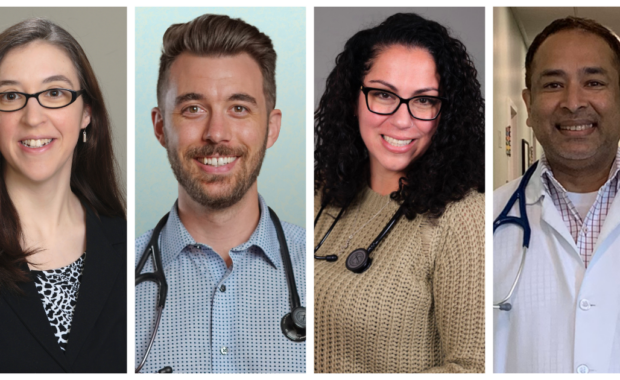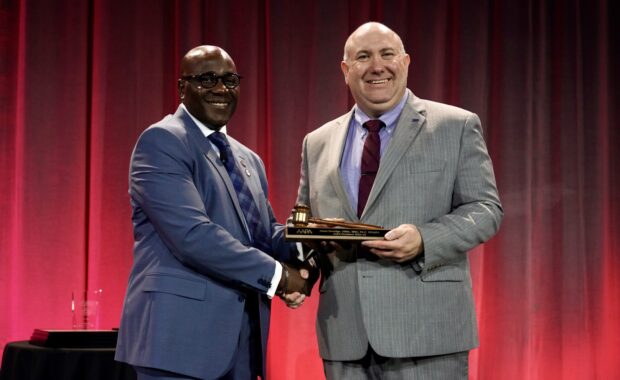PAs Featured in Emmy-Winning Film Spotlighting Social Justice Medicine
“Although the jail may seem like a dangerous place to work, it is safer than any hospital and clinic.”
December 11, 2019
By Divya Williams
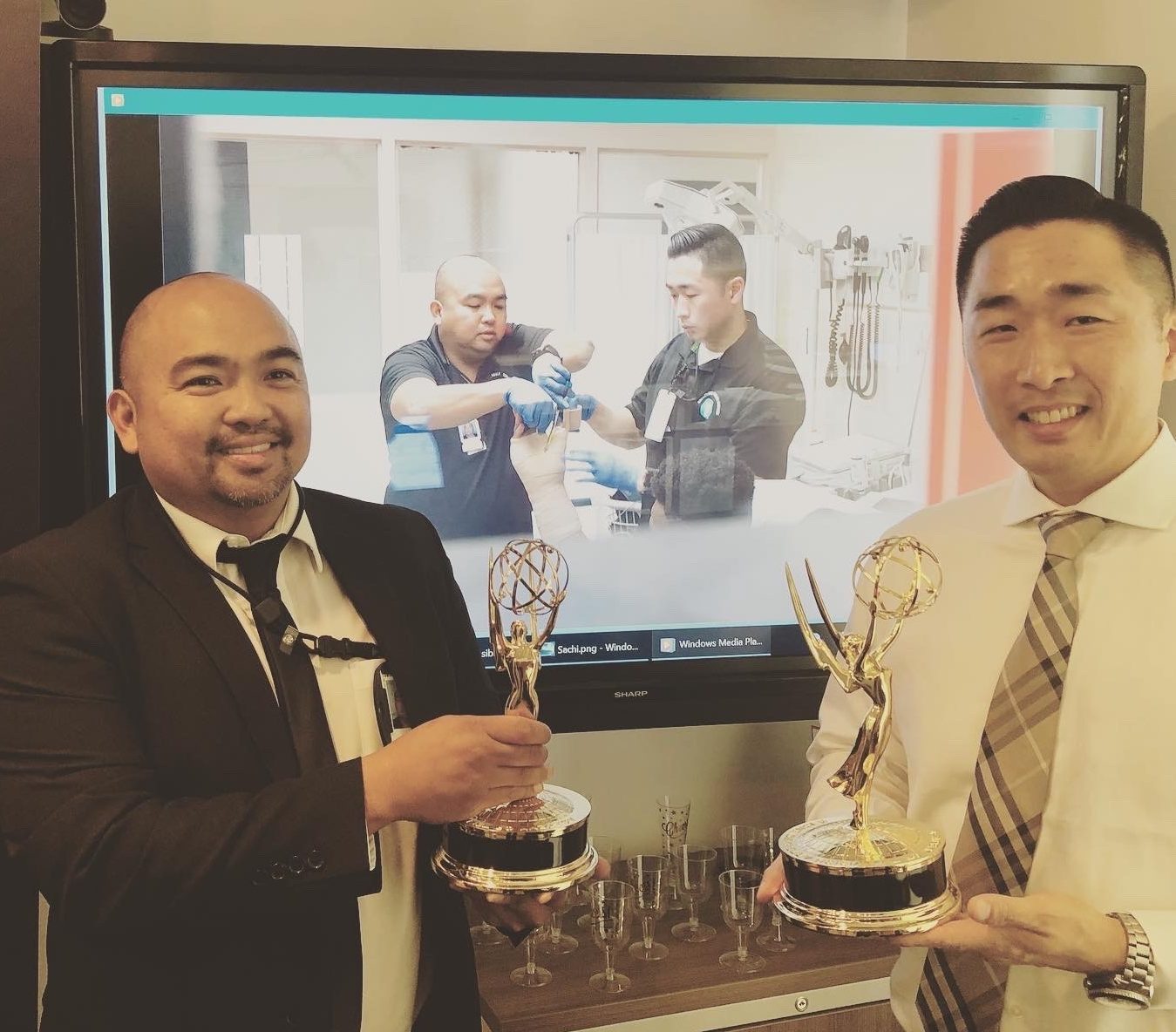
When LA County was experiencing a provider shortage in its correctional health services, it decided to create a short film in hopes of hiring more providers. Mission Possible: Social Justice Medicine Inside LA County Jail sought to inform viewers regarding correctional health services, break down barriers to interest, and attract more providers to the field. The film went on to win the 71st Los Angeles Area Emmy under the category Information Segment. Two of the providers from LA County Jail who were interviewed in the short film were Brian Ko, DMSc, PA-C, and Ko’s supervisor Kyle Vivo, DMSc, MBV, MPAS, PA-C, senior PA at LA County Jail.
Need for providers
“There was such a shortage of providers that LA County decided to come out with this video in hopes of hiring more medical providers as it was challenging to do so by word of mouth,” says Ko. According to Margarita Pereyda, Chief Medical Officer, LA County Jail’s inmate reception center is the busiest inmate reception center in the country. “Any one day, we have 400 people that come in and 400 people that go out,” says Pereyda. “I grew up in a town that’s still mired in the cycle of poverty and violence and drugs, and it mirrors the population that I’m serving,” she shares. Pereyda is one of 11 siblings, 12 before her brother died in war. “I’ve spent a lot of time visiting my siblings on the other side of Corrections, and I just hope that the people who took care of them cared about them.”
The path to LA County Jail
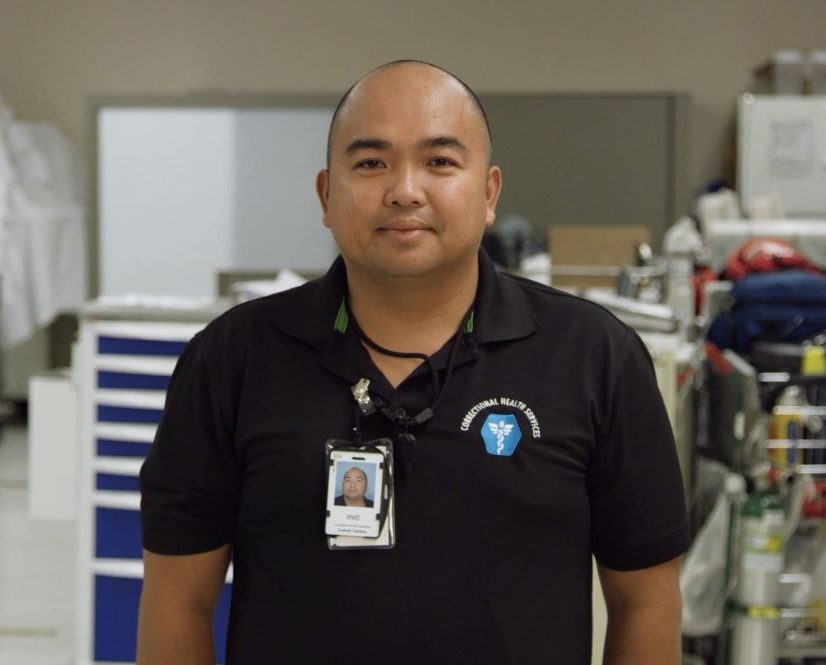
Ko began his career in the military – his first four years were with the Marine Corps as a combat medic and his last four years were with the Navy. During those years, he discovered his passion for medicine. Before he left the military, Veterans Affairs (VA) had Ko take an exam in order to provide suggestions on possible career options. “You guessed it right, PA was the recommended career path for me,” he shares.
While Ko was working for an Emergency Medicine group, he was offered another position with a group which had a contract with LA County Jail. “During this time, I met Kyle Vivo, fellow PA. He recruited me to work under LA County to help operate the urgent care within the jail to deliver quality care while minimizing the amount of transfers to the hospital,” says Ko. Vivo also has a military background and was 18 when he was deployed to Iraq with a combat unit. He then opted to join the LA County Jail correctional health staff because of the “close-knit family” there. “One of the things that I always strive to find is a place where I’m needed,” shares Vivo. “And I think I’m needed here.”
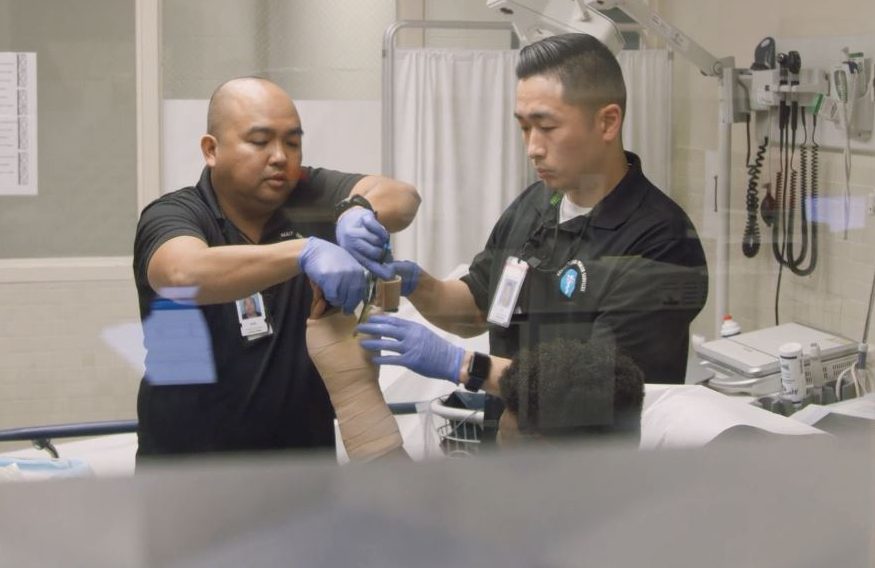
The power of a mentor
Ko shares that Vivo is, in large part, the reason he made the transition to LA County Jail. “Since I was a new graduate from PA school, with a senior PA willing to teach and train me, and who had the heart to serve in an underserved population, I was sold on the idea of serving in correctional health services,” he says.
“Kyle has helped me become a better PA by learning procedural skills and management of complex patients. I would have never dreamed about doing those things in the emergency department, especially with orthopedics since 75% of the complaints are orthopedic related,” Ko shares. Vivo also encouraged Ko to further his education, and Ko now holds a Doctor of Medical Science (DMSc) from the University of Lynchburg. Vivo shares that Ko has “excelled and met every challenge with open arms,” and that he’s felt rewarded by mentoring Ko because the two share “the same core values that were instilled upon us when we became US Navy Corpsmen: honor, commitment, and courage.”
[AAPA’s Career Development Tool: Mentor Match]
Vivo’s advice for PAs interested in following a similar path is to be “willing to be open-minded and approach this profession in this environment with dignity and compassion.”
A day in the life at Los Angeles County Jail
A typical day for a provider in the jail may begin with patients already waiting to be seen. A deputy escorts all the patients into a bed or chair and handcuffs them for security purposes. “The inmates will present with a variety of complaints ranging from low acuity (upper respiratory infection, ankle sprain, fractures) to higher acuity (acute myocardial infarction, seizures, drug/alcohol withdrawals),” says Ko. “Many altercations break out, as one would assume, and we deal with a lot of facial and body injuries.”
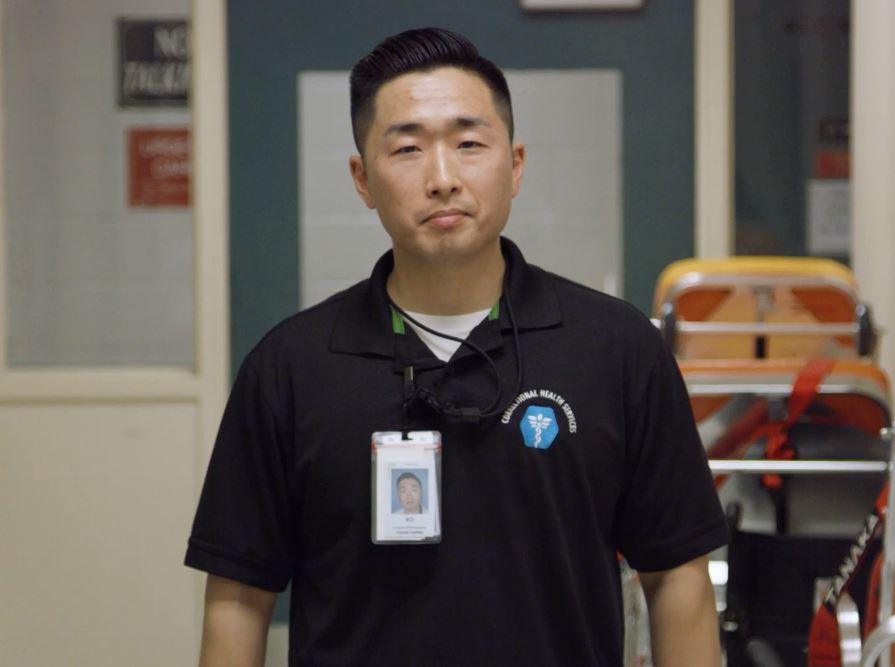
If a patient is unable to be managed within the jail, then the patient is transferred to the local county hospital. “Since the urgent care is the highest echelon of care within the jail, we have to be ready for whatever comes through the door,” says Ko.
Ko shares that PAs would be surprised by the amount of autonomy and scope of practice they have in the jail. “If you are a new graduate, this is a great place to start as there are emergency medicine/family medicine trained physicians/PAs who are more than willing to train you.”
[Find out more about practicing in other specialties from our A Day in the Life collection]
Serving the underserved
Ko’s passion for correctional health can be seen in his “patient care first” approach. “I think everyone deserves the same care. I don’t care what they came in here for, I never ask them why they’re in. It’s their business – we’re just here to treat them.”
Ko encourages his fellow providers to not be intimidated by the idea of working in a jail. “Although the jail may seem like a dangerous place to work, it is safer than any hospital and clinic,” Ko shares. “The majority of inmates are chained and escorted by a deputy, and inmates have no access to weapons. I feel safer working in the jail than I did in the ER.”
To those interested in making an impact as a PA and seeing the results of that impact, Ko says that a correctional health service would be the place to start. “When inmates tell me that I provided them better care than the outside community and are genuinely thankful; it makes serving in jail worth it,” says Ko. “This is what I have always wanted to do, delivering medical care to the underserved population.”
Mission Possible: Social justice medicine inside L.A. County jails from Los Angeles County Newsroom on Vimeo.
Read More
Tattoo Removal: A Different Kind of Medicine
Caring for Those Behind Bars Becomes PA’s Lifelong Profession
Every User Has a Story: PA Aims to Humanize Patients with SUD
Divya Williams is an associate in AAPA’s Communications Department. Contact her at [email protected]. And contact Brian Ko at [email protected].
Thank you for reading AAPA’s News Central
You have 2 articles left this month. Create a free account to read more stories, or become a member for more access to exclusive benefits! Already have an account? Log in.


